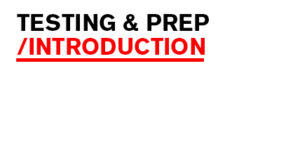
Condoms provide by far the best protection against sexually transmitted infections (STIs), but they still don’t provide 100% protection. Even if you always use a condom, it may be a good idea to get tested for STIs.
There are different STIs and they can affect you in different ways. Untreated STIs have a negative impact on the body, sometimes without the person noticing. If you have an STI it could also increase your susceptibility to other STIs and HIV. So it’s a good idea to get tested regularly, even if you don’t have any signs or symptoms of an infection. By getting tested, you take control of your own sexual health. For people selling sex, we recommend to get tested at least every three months.
Everyone has an HIV status, but not everyone is certain what it is, whether or not they are carrying HIV. The only way of taking control and avoiding uncertainty is to get tested. There are many benefits of having this control, from avoiding uncertainty for yourself and your sexual partners, to being able to start effective treatment at the right time if it turns out you do have the HIV virus. Testing is also an excellent opportunity to talk to a knowledgeable advisor and get answers to any queries you may have about sex and safer sex.
You are entitled to free testing and treatment for HIV and most sexually transmitted infections. Testing has a short shelf-life which means that it is outdated by the next time you have sex. Regular testing gives you better control over your own health. Testing provides information about the situation at the time of testing. It doesn’t offer any protection, either now or in the future. It does, however, give you an opportunity to find ways to reduce risks and therefore increase your peace of mind. Condoms provide the most effective protection against infections.
If you want to get tested for HIV it’s important to remember that it can take up to two months before it’s detectable in an HIV test, but results are pretty accurate after four weeks. If you feel worried, go and get tested, even though three months has not passed.
To ensure you’re tested in the right places of your body, it’s important to say where you want to be tested (obviously this depends on how you have had sex – but you don’t have to say how you’ve had sex) before testing, as STIs can occur in the throat, penis/vagina or in the anal.
You always have the right to remain anonymous during HIV testing. If, however, you later turn out to be HIV positive, you can no longer remain anonymous to the medical staff.
How often do you get tested? Sign up for a free reminder via text message. Just text THREE to 71111 and you will get a reminder every three month from “RFSL”. The text do not contain anything referencing selling sex.



